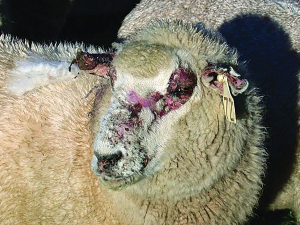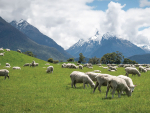Facial Eczema (FE) is a production-limiting, potentially fatal disease that affects both sheep and cattle.
While it has traditionally been associated with warmer and wetter parts of the North Island, it has recently been identified in northern South Island areas.
Will Halliday, B+LNZ’s senior advisor animal health and biosecurity, says under a changing climate, FE is predicted to become more widespread and track further south.
FE is caused by spores of a fungus growing on the litter in the base of the sward. The spores contain a toxin, which attacks the liver.
The fungus is always in the pasture, but when temperatures and moisture levels are high, and grass minimum temperatures remain above 12–13˚C overnight, the fungus suddenly goes on the rampage, growing rapidly and producing vast numbers of toxic spores.
Halliday says the liver damage associated with FE results in production losses that are much greater than may first appear.
Even when no symptoms are visible, FE can reduce lifetime productivity by up to 25%.
He adds that there are tools available for farmers to help mitigate the risk of FE in their sheep and cattle. Halliday is encouraging farmers in at-risk northern South Island regions to start considering FE management strategies – even if they have yet to see the disease on their property.
“For example, sheep farmers have FE tolerant genetics available to them, so it might be prudent to start considering FE tolerance in ram selection criteria as a way to future proof sheep flocks.”



















